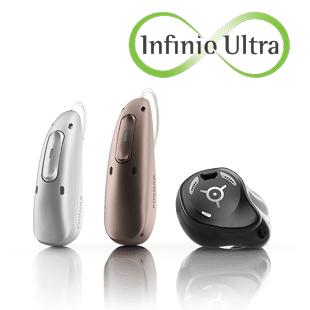
Is hearing loss a laughing matter?
We often observe hearing loss being treated with humor. Is this a positive thing? The answer is more complex, as we learned from our recent research.
We often think of humor in a solely positive way – it can bring joy and strengthen our connections with others. But humor can sometimes have negative consequences too. When does a joke become a tease? When does humor bring shame and stigmatization instead of joy?
This was something we explored in our recent research investigating the stigma experiences of adults with acquired hearing loss and their families. This research has been published as a special issue in the International Journal of Audiology and can be found here.
What the research explored
In this research, we used a range of methods (including interviews, surveys, ecological momentary assessment, and video-recordings of real-life everyday conversations) to explore how adults with hearing loss experienced and responded to stigma related to hearing loss in everyday life.
Across the multi-method data, humor was repeatedly observed to be a key factor related to stigma. But we found that, depending on who initiated the humor, it could either be used as a positive way to manage stigma experiences or it could actually contribute to experiences of stigma for adults with hearing loss. So not all humor was equal.
When humor comes from the person with hearing loss
Sometimes in our data, humor/laughter related to hearing loss was initiated by the person with hearing loss themselves, as a form of self-directed or self-deprecating humor. This was observed in the video recordings of real-life everyday conversations as well as the interviews with adults with hearing loss and their families.
Participants described humour as a way to:
- Ease awkward moments
- Open up about their hearing loss
- Deflect negative reactions
- Connect with others facing similar experiences
- Regain control over how their hearing loss is perceived
In the interviews, adults with hearing loss reported that they often laugh about their hearing difficulties with others in a similar situation and joking about their hearing loss and hearing aids with family, friends, and colleagues, especially if they missed a part of the conversation or misheard something.
Family members agreed that adults with hearing loss used humor to manage the stigma of hearing loss. As one family member said:
“She’s learned to not take herself so seriously …the way that she does keep appearances up in terms of the hearing loss and all, is by making a joke at it herself, at her own expense” [FM2].
So, this type of self-directed humor can enable adults with hearing loss to navigate social interactions, challenge stigmatizing attitudes, foster connections, reclaim control over their narrative, and act as an active coping strategy to stigma-induced identity threat.
When humor comes from others
It was more frequent in our study, however, that humor was initiated by someone other than the adult with hearing loss. In these instances, the humor constituted a ‘tease’.
In the video recordings of real-life everyday conversations, we observed:
- The person with hearing loss usually did not join in the laughter
- Their responses tended to be serious or withdrawn
In this sense, the humor was one-sided. The teases also had a shaming undertone to them as their purpose was to draw attention to the person’s hearing loss and attribute blame for the disruption of the conversation to their hearing loss. In this way, frequent teasing can lead to adults with hearing loss feeling stigmatized in social interactions.
In the international self-report survey we conducted (across Australia, USA, and UK):
- 57% of adults with hearing loss reported that they thought other people laughed about or treated their hearing loss as a joke.
- Of those, 30% felt uncomfortable
- 25% felt frustrated
Further, in the Ecological Momentary Assessment surveys (conducted on a smartphone at the time of a real-world conversation), stigma events, characterised by reports of being treated negatively, were typically experienced:
- At home
- In conversations with close family or significant others
- With people who were already aware of their hearing loss
Teasing from close family members can thus also contribute to stigma experiences for adults with hearing loss.
Implications for adults with hearing loss, families, and hearing care professionals
- For adults with hearing loss: Humor can be used to help ‘break the ice’ in talking about hearing loss and/or hearing devices. Self-directed joking can be a positive response to help adults with hearing loss ease or lighten potential moments of stigma-induced identity threat.
- For family members and significant others: Jokes and teasing about hearing loss, even from close family and friends, can seem light-hearted but can embarrass or shame a person with hearing loss. People should think twice before teasing someone for their hearing difficulties.
- For hearing care professionals: Some clients may be hesitant to be open about their hearing difficulties if they regularly experience joking/teasing about their hearing loss from others. It is important for hearing care professionals to be aware of this when discussing hearing rehabilitation and talk with clients about what strategies they feel comfortable doing to manage their hearing loss in everyday life.
One question you can ask clients to help reveal if they experience stigma is: “Who do you tell about your hearing loss?” People who experience stigma often do not tell anyone about their hearing loss so if their answer is “no one” or “not many people”, they may need additional counselling to help them overcome their stigma experiences.
Want to learn more?
All papers from this research program are featured in a Special Issue of the International Journal of Audiology. Access the articles here.
Acknowledgement:
This research was supported by a grant from the Hearing Industry Research Consortium. Many thanks to the research team: Professor Louise Hickson, Dr Katie Ekberg, Dr Barbra Timmer, Professor Nerina Scarinci, Dr Carly Meyer, Dr Monique Waite, and Dr Mansoureh Nickbakht.
Reference:
Ekberg, K., Timmer, B. H., Meyer, C., Waite, M., Scarinci, N., Nickbakht, M., & Hickson, L. (2024). A laughing matter? Managing hearing difficulties in real-life everyday social interactions with adults with hearing loss. International Journal of Audiology. https://doi.org/10.1080/14992027.2024.2389189
